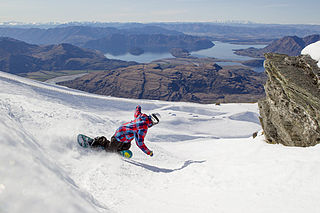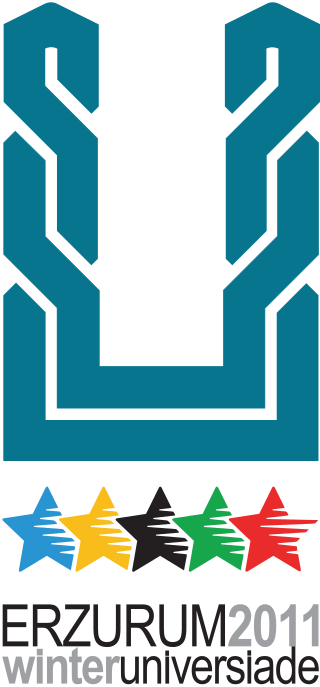
The 2006 Winter Olympics, officially the XX Olympic Winter Games and also known as Torino 2006, were a winter multi-sport event held from 10 to 26 February 2006 in Turin, Italy. This marked the second time Italy had hosted the Winter Olympics, the first being in 1956 in Cortina d'Ampezzo; Italy had also hosted the Summer Olympics in 1960 in Rome.

The 1992 Winter Olympics, officially known as the XVI Olympic Winter Games and commonly known as Albertville '92, was a winter multi-sport event held from 8 to 23 February 1992 in and around Albertville, France. Albertville won the bid to host the Winter Olympics in 1986, beating Sofia, Falun, Lillehammer, Cortina d'Ampezzo, Anchorage, and Berchtesgaden. The 1992 Winter Olympics were the last winter games held in the same year as the Summer Olympics. The Games were the fifth Olympic Games held in France and the country's third Winter Olympics, after the 1924 Winter Games in Chamonix and the 1968 Winter Games in Grenoble. This games was the first of two consecutive Olympic games to be held in Western Europe, preceding the 1992 Summer Olympics in Barcelona, Spain.

Treble Cone is the closest ski area to Wānaka, New Zealand.
The 5th Asian Winter Games took place from February 1 to 8, 2003 in Aomori Prefecture, Japan.
This article contains a chronological summary of the 2006 Winter Olympics in Turin, Italy.

The XXV Winter Universiade, took place in Erzurum, Turkey between 27 January to 6 February. Erzurum is the city at the highest altitude in Turkey, at 1,850 m (6,070 ft), and has over 320 cultural landmarks. Located in Eastern Anatolia Region, it is a city on the traditional silk road and has been governed by many cultures over the centuries. The Erzurum Ice Hockey Arena, located on the Cemal Gürsel Sports Campus, was newly built with an ice rink of 60m x 30m and 3,000 seats for spectators.

Cardrona Alpine Resort is an alpine resort in New Zealand's South Island. The ski field ranges from 1,260m to 1,860m. The distribution of slopes is 25% beginner, 25% intermediate, 30% advanced and 20% expert. There are 2 detachable quad chairlifts, 2 fixed-grip quad chairlifts, 1 detachable express chondola, 3 surface conveyor learner lifts and 1 platter lift to service the halfpipes and big air jump. Snowmaking supplements the 2.9m average annual snowfall. Freestyle Snowboarding and skiing are well catered for with 2 half pipes and 4 terrain parks. There is also a "high performance centre" which trains more advanced skiers and snowboarders. Families with infants and young children can use child care facilities provided in the Cardrona Nursery and Ski Kindy.
The Gymnasiade, or World Gymnasiade, or World School Sport Games, or ISF World School Sport Games is an international multi-sport event which is organised by the International School Sport Federation (ISF). It is the largest event among many other sport events held by the ISF. Aligned with the philosophy of the organisation, only individuals between the ages of 13 and 18 are eligible to compete.
The 1st South Asian Winter Games were held in Dehradun and Auli, in the Himalayan state of Uttarakhand, India in January 2011. The games were conducted by the Indian Olympic Association and the Winter Games Federation of India. A grand opening and closing ceremony took place on 10 January 2011 and 16 January 2011, in Dehradun and Auli, respectively.

The 2011 Canada Winter Games were held in Halifax, Nova Scotia, from Friday, 11 February 2011, to Sunday, 27 February 2011.
The New Zealand Winter Games (NZWG) is an international multi-sport event held every two years in New Zealand. The event is organised by the Winter Games New Zealand Trust.

The compactness of the venue locations for the 2018 Winter Olympics and 2018 Winter Paralympics, hosted by the county of Pyeongchang, South Korea was one of the winning arguments of the bid. The Games were gathered around two main venues: these were the mountain resort of Alpensia in Pyeongchang for the outdoor (snow) sports and the coastal city of Gangneung for the indoor (ice) sports There were also two stand-alone mountain venues.
Peter Williams is a New Zealand Olympic para-alpine sit-skier from Auckland. He graduated from the Auckland University of Technology in 2005. Passing on the 2002 Winter Paralympics in order to pursue his education, he competed at the 2010 Winter Paralympics in the giant slalom, where he finished 19th, and the slalom where he finished 22nd.

The United States competed at the 2014 Winter Olympics in Sochi, Russia, from February 7 to 23, 2014. Team USA consisted of 222 athletes competing in all 15 sports.

Almaty 2022 was an unsuccessful bid for the 2022 Winter Olympics by the city of Almaty and the National Olympic Committee of the Republic of Kazakhstan. The IOC selected the host city for the 2022 Winter Olympics at the 128th IOC Session in Kuala Lumpur, Malaysia on July 31, 2015, in which Beijing won. Under the slogan “Keeping it Real,” Almaty had emphasized their traditional winter setting with tall mountains and plenty of natural snow coverage as well as compactness — most venues are within half an hour’s travel through Alpine scenery. Almaty was the only contender to have never hosted the Olympics before. Almaty previously hosted the 2017 Winter Universiade.
The 2015 New Zealand Winter Games was the 4th edition of the New Zealand Winter Gameswas contested August 21 through August 30 in the cities of Naseby, Queenstown, and Wanaka. A total of 35 events across 5 disciplines will be contested, as well as a night parallel slalom to be contested during the opening ceremony. The event is officially called the Audi quattro Wintergames.

Great Britain competed at the 2022 Winter Olympics in Beijing, China, from 4 to 20 February 2022. The Great Britain team consists of 50 athletes. Eve Muirhead and Dave Ryding were the country's flagbearers during the opening ceremony. Meanwhile curler Bruce Mouat was the flagbearer during the closing ceremony.

New Zealand competed at the 2022 Winter Olympics in Beijing, China, from 4 to 20 February 2022. The New Zealand team consisted of 15 athletes—nine men and six women—who competed in five sports. Selection of the New Zealand team was the responsibility of the New Zealand Olympic Committee (NZOC).
This is a chronological summary of the major events of the 2022 Winter Olympics in Beijing and venues near neighboring towns of Yanqing and Chongli in the People's Republic of China. Competition began on 2 February with the first matches in the group stages of the curling events. The opening ceremony was held two days later on 4 February. The last day of competition and the closing ceremony were on 20 February.











